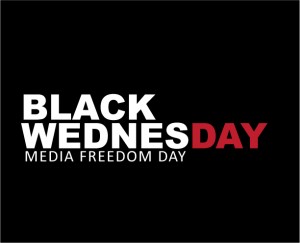Statement: R2K condemns the proposed Media Appeals Tribunal as SA commemorates Black Wednesday!

PIC: www.expressimpress.org
Today, amid relentless attacks on the media from the ruling alliance and renewed calls for a media appeals tribunal, South Africa commemorates Black Wednesday – a day in 1977 when the apartheid state clamped down on dissent by shutting down three print publications and jailing journalists and editors. With rising threats to free expression and our hard won media rights, this year’s commemoration reminds us of the lengths to which paranoid, unaccountable and corrupt states will go to suppress criticism. The decision taken at the ANC’s recent National General Council to push ahead with a media appeals tribunal should be seen in this light.
The media has come under increasing attack from the ruling party. There has been a torrent of unfounded, conspiratorial allegations from politicians, who have been quick to accuse journalists and other critics of having hidden agendas and being ‘unpatriotic’ and ‘irresponsible’. The general mood of paranoia has been exemplified by the actions of the country’s spies, who, absurdly, seem to believe that opposition figures, union leaders, the public protector, journalists and NGOs are in the employ of foreign intelligence services.
Most recently, a State Security official is alleged to have made the baseless claim that R2K is the service of a foreign government. This sort of thing is the knee-jerk response of secretive and authoritarian governments, not the actions of a state that is secure in its legitimacy.
Taking all of this into account, and given the never ending calls from political leaders for tighter regulation of the media, it is clear that the media appeals tribunal would be nothing less than an attempt to rein in the independent press. We have seen the extraordinary lengths to which the ruling party and the executive are willing to go to undermine public institutions and independent oversight bodies. A media appeals tribunal would be vulnerable to the same. It would open up the door for political interference in editorial policy and would have a chilling effect on our constitutional right to free expression.


